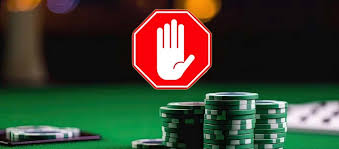Gambling has long been part of human culture and can be an enjoyable activity. To stay safe and avoid potential health hazards associated with gambling, however, it’s essential to practice responsible gambling habits in order to maximize enjoyment and minimize risks.
Responsible gaming entails refraining from problem gambling behaviors and using self-control strategies, as well as accessing resources and support services.
Limits
To minimize the risks associated with gambling, iGaming businesses should ensure their operations are ethical and enjoyable for players and themselves, which includes avoiding behaviors which could put players or themselves in harm’s way, such as gambling for money they cannot afford to lose or accruing unmanageable debts. It is also vital for industry as a whole that such actions do not undermine its reputation in the marketplace – stories about compulsive gamblers creating unsustainable debt can damage it greatly.
Responsible gambling refers to a series of strategies and initiatives that enable people to effectively manage their gambling habits. These may include setting time and financial limits, gambling for fun rather than profit, taking breaks from gambling and taking steps such as setting time counters that remind players when their time has expired or offering 24-hour cooling off periods; all tools designed to help manage the highs and lows associated with gambling. iGaming operators promote responsible gambling by offering tools that empower players to set their own limits while monitoring behavior through time counters that display how long players have spent playing as well as offering 24-hour cooling off periods – tools which allow players to set personal limits while monitoring behavior by offering tools which empower players set their own limits while monitoring behavior as iGaming operatorss encourage responsible gambling through tools designed empower players set their own limits while monitoring behavior by offering 24-hour cooling off periods during gambling sessions – these tools help people navigate its exhilarating highs and lows of gambling while offering 24-hour cooling off periods can help people navigate its exhilarating highs and lows more successfully!
Self-monitoring
Self-monitorng is an essential aspect of responsible gambling. This involves setting limits on both time and money spent gambling, avoiding high-risk situations, being prepared to lose, as well as discussing your gambling with someone trusted so as to ease stress associated with pent-up emotions.
Responsible gaming tools, including reality checks and pop-up notifications, help players maintain a balanced perspective when gambling online or at sportsbooks. Many offer daily and weekly gambling time limits while some even provide 24-hour cooling off periods for patrons.
Other tools, like self-exclusion, allow players to stop themselves from gambling by listing themselves voluntarily on lists maintained by casinos and sportsbooks. This strategy may be particularly helpful for people who struggle to manage their gambling without outside help; however, these strategies should only be employed alongside other safety precautions for maximum effectiveness.
Supportive environment
Gambling can be an enjoyable and engaging pastime, but overspending can quickly turn into financial difficulties if individuals spend more than they can afford. Responsible gambling techniques are designed to protect emotional well-being as well as safeguard financial health by setting spending limits, tracking spending habits and engaging in supportive dialogue among family members.
Many of these tools can be found through gambling establishments and online platforms, including self-exclusion tools which enable users to temporarily refrain from gambling activities for a set period. Furthermore, these platforms often provide services like counseling and therapy as part of their support services.
These tools can be especially effective for people at risk of gambling addiction. But their effectiveness depends on being used properly; addiction to gambling can have serious repercussions and it’s wise to seek assistance if any warning signs emerge; gambling addiction affects anyone regardless of age or gender.
Advocacy
While it may not be possible to completely eradicate gambling-related harm, it can be minimized through advocacy efforts. Part of ensuring help for those in need includes providing resources for support and treatment services; setting time or money limits may help minimize impulsive betting while recognizing signs of addiction should also help.
Advocacy efforts include upholding responsible gaming standards. Strict Know Your Customer (KYC) checks and age verification systems ensure only eligible individuals can access gambling platforms, while transparent odds and payout percentages foster player trust.
Gambling should be seen as entertainment rather than an attempt at earning money, and those who partake should expect more often than not to lose than win. Setting time and money limits, avoiding impulsive betting, and using funds needed for bills shouldn’t be used for gambling – people shouldn’t use gambling as an escape route from anxiety, stress or depression, nor as an outlet to forget problems in their life.

